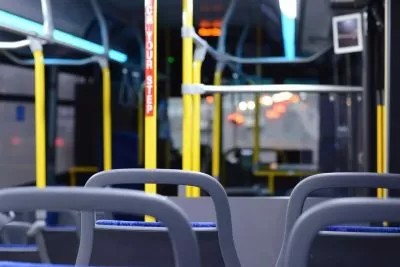Plans to implement free public transport for elderly Israelis, promised by the Minister of Transport, are unlikely to be realized by the end of 2024.
Israel’s aging population has been a growing concern for the government, with the number of citizens aged 65 and over expected to double by 2035. As part of their efforts to address this issue, the Minister of Transport, Miri Regev, announced plans to introduce free public transport for elderly Israelis by 2024. However, it seems that these plans may not come to fruition as promised.
The proposed plan would have allowed Israelis aged 65 and over to use public transport for free, including buses, trains, and the light rail. This would have undoubtedly been a welcome relief for many elderly citizens who often struggle with the high cost of transportation. It would have also encouraged more seniors to use public transport, promoting a more active and independent lifestyle.
However, the feasibility of this plan has been called into question due to budget constraints and logistical challenges. The estimated cost of implementing free public transport for the elderly is around 500 million shekels (approximately $150 million USD) per year. This is a significant amount, especially considering the current economic climate and the strain on the government’s budget due to the COVID-19 pandemic.
In addition to the financial challenges, there are also logistical hurdles that need to be addressed. The public transport system in Israel is already struggling to keep up with the demand, and adding free rides for the elderly could potentially worsen the situation. There are concerns about overcrowding, longer wait times, and delays, which could ultimately lead to a negative experience for all passengers.
Furthermore, the implementation of this plan would require cooperation and coordination between different transportation companies and municipalities. This could prove to be a difficult task, as each entity has its own regulations and policies for ticket pricing and revenue sharing. It would require significant effort and resources to reach an agreement and implement a unified system for free rides for the elderly.
Despite these challenges, the Minister of Transport remains optimistic and determined to see this plan through. In a recent statement, she reiterated her commitment to providing free public transport for the elderly, stating that it is a vital step towards improving the quality of life for Israel’s elderly population.
The benefits of free public transport for the elderly extend beyond just financial relief. It also promotes social inclusion and allows seniors to stay connected with their communities. Many elderly citizens face isolation and loneliness, and having access to free public transport would encourage them to go out, socialize, and participate in activities, ultimately improving their overall well-being.
Moreover, free public transport for the elderly would also benefit the environment by reducing the number of cars on the road and, in turn, lowering carbon emissions. This aligns with Israel’s commitment to sustainability and reducing its carbon footprint.
In conclusion, while the promised plans for free public transport for elderly Israelis may face some challenges and delays, the benefits of its implementation are undeniable. It would improve the lives of many elderly citizens, promote a more sustainable society, and demonstrate the government’s commitment to addressing the needs of its aging population. With determination and cooperation, we can hope to see this plan become a reality in the near future.







